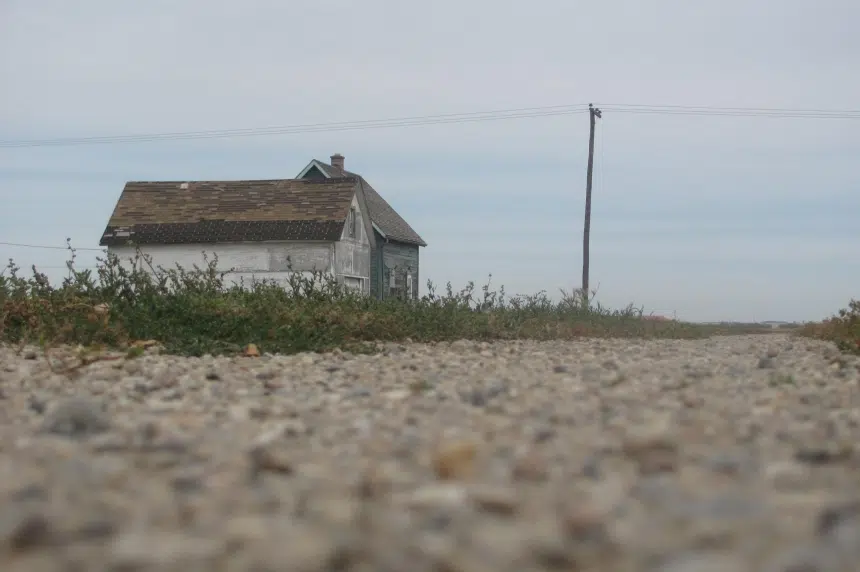Rural municipality associations from across the prairies have come together in Regina to discuss a wide variety of topics at their annual meeting.
The Western Canadian Municipal Association Meeting brings together the Saskatchewan Association of Rural Municipalities (SARM) and the Saskatchewan Urban Municipalities Association (SUMA) with their counterparts from Alberta and Manitoba — the Association of Manitoba Municipalities, the Rural Municipalities of Alberta and the Alberta Urban Municipalities Association.
The agenda included many different talking points including cannabis legalization, rural crime and pipelines.
Trans Mountain Pipeline
Gordon Barnhart, president of SUMA, said one of the major talking points between them was the Trans Mountain Pipeline debate.
“Certainly we’ve said ‘Yes, we’re in support of that’ and we’re hoping an agreement can be made,” Barnhart said.
He said Manitoba wasn’t as supportive of it but noted they are further away from the pipeline debate.
“It also takes the pressure away from the rail if oil is not so much on the rail as going through the pipeline then we get the potash and agriculture products to market.”
Carbon tax
Both Manitoba and Alberta have a form of carbon tax in their respective provinces. Saskatchewan remains a holdout over the tax, even taking things to court.
“There wasn’t a general consensus as to whether there should be or not but we had a healthy discussion about carbon tax and how it’s affecting our costs as urban and rural municipalities.”
Barnhart said both SUMA and SARM has supported the Saskatchewan government’s stance on the carbon tax.
Rural Crime
For SARM delegates, rural crime was one of the major talking points.
Ray Orb, president of SARM, said themselves, along with associations in other provinces, have been working together with the RCMP.
In Saskatchewan, SARM is looking at bringing back the rural crime watch.
“It’s more prevalent in Alberta, we’re trying to reinvigorate it in Saskatchewan,” Orb said.
Orb said they should look at how Alberta’s crime watch program is being run and try to determine the best way to run it in Saskatchewan.
They are also working with the province on the Protection Response Team.
He said RCMP Assistant Commissioner Curtis Zablocki has agreed to meet with rural municipalities on a regional basis.
Members of SARM also feel the trespass act needs to be looked at and changed.
Orb said they are trying to get a meeting with Justice Minister Don Morgan to discuss possible amendments.
“A majority of our delegates don’t believe that farmers should have to post their land ‘No trespassing’, they think that people don’t need to come onto their land unless they have a reason to come onto their land.”
Marijuana legalization
One cloud hanging over all provinces remains the full legalization of marijuana which is set to take place this summer.
Orb said many of the provinces are in the same boat, but some are further ahead than Saskatchewan in the process.
Both rural and urban municipalities are expected to incur costs and both associations are concerned there was nothing in the recent budget surrounding cannabis revenue.
While Barnhart was under the impression municipalities would be getting 25 per cent of marijuana revenue, he said that appears to no longer be the case for now.
“We’re not going to get any of that revenue even though we’re incurring extra expenses, especially on policing.”
He said the provincial government is doubtful the process will cost municipalities much.
“Maybe in five years from now we’ll look back and say ‘Well we worried too much about things’ but right now municipalities are quite concerned on enforcement.”
Barnhart also added that some places do not want to have a store in their area.
Infrastructure
Barnhart said there’s a huge bill awaiting the urban municipalities — towns, villages and cities — when it comes to infrastructure.
“Many of the sewer and water systems that went in, especially in the towns and villages, all were about 50-55 years ago and the standards have gone up in terms of what water quality has to be.”
He said there was a good discussion between all the associations about how infrastructure money is being spent, specifically in phase two of the federal infrastructure funding.
Orb said Ottawa has told them they will contribute up to 60 per cent of funding, especially for the rural infrastructure component.
He said they don’t know what the province will commit at this time.
Bridges are at the top of the list of things that are needed to be fixed in rural municipalities.
SARM believes 20 per cent funding is a fair number that should come from the municipalities.
He said the feelings are that other provinces are in the same boat when it comes to infrastructure.







